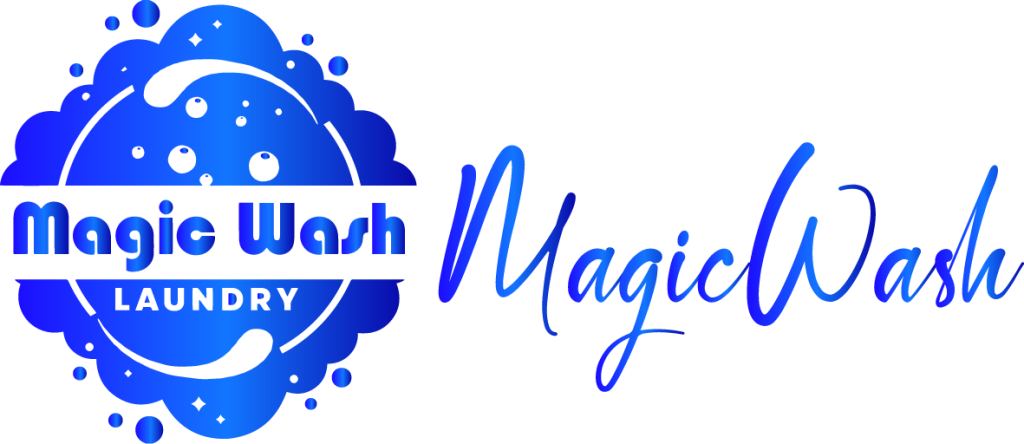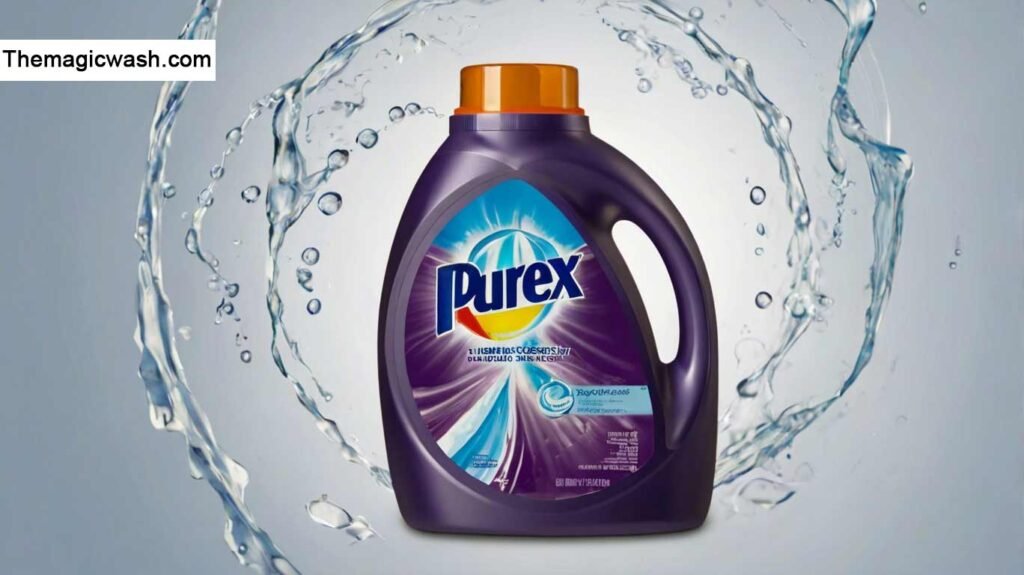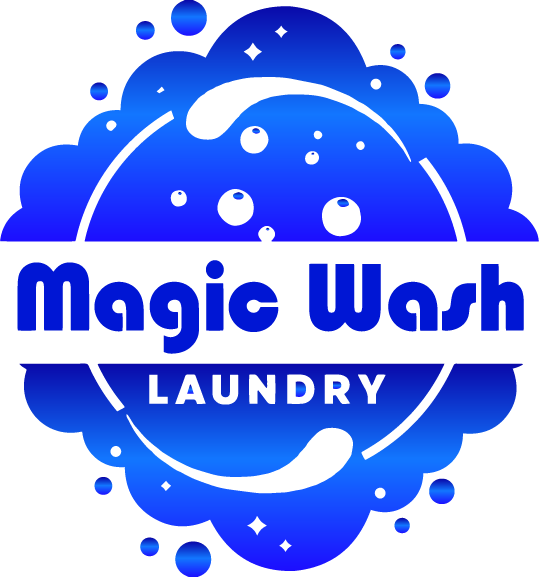Purex is a popular and affordable laundry detergent known for its ability to clean clothes well at a low price. It works for most common stains like dirt, sweat, and food, making it a good choice for everyday laundry. Purex is available in different types, such as liquid, pods, and powder, so you can choose what works best for your washing machine and personal preference.
One of the reasons people like Purex is that it works well in both regular and high-efficiency (HE) washing machines. HE machines use less water, and Purex is designed to make fewer suds in these machines, so there is no leftover detergent residue. Plus, Purex comes in different scents like fresh linen and lavender, which leave your clothes smelling nice without strong chemical smells.
When it comes to removing stains, Purex does a good job with everyday messes like dirt and food stains. It contains surfactants and enzymes that help clean and break down stains. However, it may not be as effective on tougher stains like grease or oil. For these, you might need to use a special stain remover along with the detergent.
For people who care about the environment, Purex is not the most eco-friendly option. While some of its products have recyclable packaging, the detergent contains synthetic fragrances and brighteners, which are not as natural as other brands. There are more eco-conscious choices like Seventh Generation or Method that use plant-based ingredients and biodegradable formulas.
In conclusion, Purex laundry detergent is a reliable and affordable choice for regular laundry needs. It works well for most stains, smells nice, and is compatible with all types of washing machines. While it may not handle heavy stains as well as premium brands, its price and performance make it a solid option for everyday use. If you’re looking for something more eco-friendly, there are other alternatives, but Purex is a good, budget-friendly choice.
What is Purex Laundry Detergent?
Purex is a brand of laundry detergent produced by Henkel, a global company known for its diverse line of cleaning products. The Purex brand offers various types of detergents, including liquid, powder, and pods, each designed to meet different cleaning needs. The primary selling points of Purex are its affordability, effective cleaning, and relatively mild formulation.
Purex’s formulation often includes key ingredients like surfactants, which break down and lift dirt from fabrics, as well as enzymes that target stains, making it effective for a range of laundry loads. It is also marketed as an option for those who are looking for an economical yet dependable product for their washing machine.
How Effective Is Purex Compared to Other Laundry Detergents?
To answer whether Purex is truly effective, it’s essential to compare it against other leading laundry detergent brands, including Tide, Persil, and Arm & Hammer.
Cleaning Power:
Purex detergent has been noted for its cleaning capabilities, but how does it perform compared to other high-end detergents?
- Stain Removal: Purex provides decent stain-fighting power, though it generally lags behind brands like Tide and Persil, which use advanced enzyme technology to tackle a wider variety of stains (e.g., greasy, protein-based, and oily stains).
- Fabric Softening and Freshness: Purex’s fabric softening formulas are effective for most fabrics, but may not leave clothes as soft or as fresh-smelling as premium options like Downy or Tide’s fabric softening variants.
Key Fact: According to a study conducted by Consumer Reports, Purex was ranked moderately effective in removing everyday stains like dirt and grass. However, brands like Tide and Persil performed significantly better in the area of heavy stains such as oil and red wine.
Performance in Different Water Temperatures:
Purex is effective in both hot and cold water washes, though, as with most detergents, it performs better in warm water, where the surfactants are more effective. Cold water performance, however, can be subpar when compared to more specialized cold-water detergents.
Is Purex Safe for All Washing Machines?
Purex detergent is generally safe to use in both top-loading and front-loading washing machines, including high-efficiency (HE) models. However, there are some considerations to keep in mind.
For Standard Top-Load Washers:
Purex works well in standard top-load washers, where the wash cycle typically uses more water. This helps to rinse out the detergent completely, minimizing the risk of any residue buildup.
For HE (High-Efficiency) Washers:
High-efficiency washers require a low-sudsing detergent that works with less water. Purex HE detergent is specifically formulated for these machines and provides a low-sudsing formula that works efficiently with the water levels in HE washers.
Fact: It’s important to note that while HE versions of Purex are designed for use in high-efficiency washers, the regular liquid and powder formulas may produce excess suds, which can harm the performance of HE washers or lead to detergent residue buildup.
Cost-Effectiveness: Is Purex a Budget-Friendly Option?
One of the main draws of Purex is its affordability. When compared to premium brands like Tide and Persil, Purex generally offers a more budget-friendly price per load.
Price Per Load:
- Purex: Costs between $0.15 – $0.25 per load depending on the product variant and where it is purchased.
- Tide and Persil: These premium brands often cost $0.30 – $0.50 per load, making them significantly more expensive.
Volume and Packaging:
Purex is often sold in larger, family-sized bottles, which increases its cost-efficiency in terms of price per ounce. In addition, it’s available in multiple formats, including liquid, powder, and pods, allowing consumers to choose the most cost-effective option based on their preferences and needs.
Is Purex an Environmentally Friendly Laundry Detergent?
Environmental sustainability has become an important factor for many consumers when choosing household products. Purex offers some eco-friendly options, though its environmental impact is mixed when compared to other brands that focus heavily on sustainability.
Packaging:
Purex offers products in recyclable containers, and the brand claims that it uses post-consumer recycled (PCR) plastic in some of its packaging. However, the brand could improve its sustainability efforts by moving toward more sustainable packaging materials, such as biodegradable containers or offering refill options.
Ingredients:
Purex has a range of products that are marketed as safe for the environment, such as its natural Purex detergent line. However, its mainstream formulas still contain some chemicals (like fragrances and surfactants) that can have an environmental impact when washed into the water supply.
Comparison:
Compared to brands like Seventh Generation or Ecos, which offer plant-based ingredients and prioritize green chemistry in their formulations, Purex is less eco-friendly. However, it is still considered more environmentally responsible than other mass-market detergents that use harsher chemicals.
What Do Consumer Reviews Say About Purex?
Consumer reviews often provide insight into the practical effectiveness and satisfaction level of a product. Analyzing reviews from various sources reveals a mix of positive and negative feedback about Purex.
Positive Aspects:
- Affordability: Users appreciate the cost-effectiveness of Purex, especially families or those on a budget.
- Effective on Everyday Dirt: Many users find that Purex does a great job on regular loads of laundry, leaving clothes fresh and clean.
- Fragrance Options: Purex offers a variety of pleasant scents, and many users enjoy the fragrance it leaves on their clothes.
Negative Aspects:
- Not as Effective on Heavy Stains: Some users report that Purex is not as effective on tough stains like grease, oil, and grass compared to premium options.
- Residual Soap Build-Up: A common complaint is that Purex may leave detergent residue in the washer or on clothes if not rinsed properly, particularly in HE machines.
Purex vs. Other Laundry Detergents: How Does It Compare?
To better understand Purex’s standing in the market, here’s a comparison with some of the leading detergents.
| Brand | Effectiveness | Price per Load | Eco-Friendliness | Fragrance |
|---|---|---|---|---|
| Purex | Good for everyday dirt, moderate for stains | $0.15 – $0.25 | Moderate | Multiple options |
| Tide | Excellent, especially on tough stains | $0.30 – $0.50 | Moderate to High | Popular scents |
| Persil | Excellent on heavy stains, especially grease | $0.30 – $0.50 | Moderate | Popular scents |
| Seventh Gen | Good for light cleaning, eco-friendly | $0.25 – $0.40 | High | Natural scents |
| Ecos | Moderate, plant-based formula | $0.20 – $0.30 | High | Mild scents |
Is Purex a Reliable Laundry Detergent?
Purex is a widely recognized laundry detergent brand known for its affordability and effectiveness in everyday cleaning. While its performance is generally considered reliable for regular laundry loads, it is essential to evaluate its reliability in various areas such as stain removal, fabric care, and compatibility with washing machines.
Effectiveness:
Purex provides dependable cleaning for everyday dirt, dust, and light stains. It is particularly effective when used for routine laundry tasks and common fabrics. For example, Purex’s fresh linen scent is a popular choice for leaving clothes smelling pleasant after a wash. However, it may not be as effective on more challenging stains compared to premium brands like Tide or Persil, which use more advanced stain-fighting technologies.
Reliability in Different Washing Machines:
Purex is suitable for both standard and high-efficiency (HE) washing machines, with some variants specifically designed for HE machines. This makes it a versatile choice for most households.
Consumer Satisfaction:
Many users consider Purex reliable due to its consistent performance over time, though occasional complaints about residue buildup in high-efficiency washers are noted. As long as it is used according to manufacturer recommendations, Purex is generally considered a reliable detergent option.
What Are the Key Ingredients in Purex Detergent?
The ingredients in Purex detergent are designed to clean clothes effectively while being safe for use in various washing machines. Here are the primary components typically found in Purex detergent formulations:
- Surfactants: These are the cleaning agents that help remove dirt and grime from fabrics. Common surfactants in Purex include alkylbenzenesulfonates and linear alkyl sulfonates.
- Enzymes: Purex uses enzymes such as protease and amylase to break down protein-based stains like grass and food, and starches such as from pasta and sauces.
- Brighteners: Optical brighteners are used in Purex to enhance the appearance of white and light-colored clothes by making them appear brighter.
- Fragrances: Purex includes fragrances like fresh linen or lavender to leave clothes smelling fresh.
- Water Softener: Calcium carbonate or similar compounds are used in some variants of Purex to prevent mineral buildup in hard water, improving the detergent’s effectiveness.
- Preservatives: Phenoxyethanol and other preservatives help maintain the shelf life of Purex products and prevent bacterial growth in the bottle.
- Thickening Agents: Xanthan gum or other similar substances are often used in liquid detergent formulas to improve consistency and prevent separation.
These ingredients work together to provide the cleaning power necessary for most laundry needs while remaining affordable.
How Does Purex Compare to Other Detergents?
When compared to other detergents, Purex stands out for its cost-effectiveness and moderate cleaning power. However, its performance can differ when compared to premium brands like Tide or Persil, which use advanced stain-fighting technologies.
Cleaning Power:
- Purex: It performs well on everyday dirt and common stains such as mud, sweat, and food spills but may not handle tough stains like oil or grease as effectively as its premium counterparts.
- Tide: Known for its powerful stain-fighting formulas, Tide often outperforms Purex in handling heavy stains, including grease, blood, and red wine.
- Persil: Persil is highly effective at removing tough stains due to its enzyme technology and premium ingredients, making it a strong contender against Purex in stain removal.
Price Comparison:
- Purex: One of the most affordable options, with a cost of $0.15 to $0.25 per load.
- Tide: Typically more expensive, costing $0.30 to $0.50 per load.
- Persil: Also priced higher, around $0.30 to $0.50 per load, similar to Tide, but often perceived as a premium product.
Environmental Impact:
- Purex: While not as eco-friendly as brands like Seventh Generation or Ecos, Purex does offer a natural product line that contains fewer synthetic chemicals and biodegradable ingredients.
- Tide: Tide’s eco-friendly line, Tide Purclean, is more sustainable, using plant-based ingredients and a lower carbon footprint in production.
- Persil: Persil also offers sustainable products but tends to use more synthetic surfactants, which can have a larger environmental impact.
Verdict: Purex is a reliable detergent in terms of price and performance, particularly for standard cleaning tasks, but brands like Tide and Persil excel in more specialized areas like heavy stain removal and advanced fabric care.
Can Purex Detergent Remove Tough Stains?
Purex is capable of removing common stains like dirt, grass, and food spills. However, it may struggle with tougher stains such as grease, oil, blood, or red wine. Here’s a breakdown of its stain removal capabilities:
- Light to Moderate Stains: Purex performs well on everyday stains like mud, sweat, and food. Enzymes in Purex work on organic stains, helping to break down proteins and starches.
- Tough Stains: Purex may not be as effective in removing heavy-duty stains like grease or oil, which require stronger formulations. Premium brands like Persil ProClean or Tide Ultra Stain Release are specifically designed for these tougher challenges.
To optimize Purex’s effectiveness on tough stains:
- Pre-treat stains: Apply a small amount of Purex directly to the stain before washing.
- Use the hottest water safe for the fabric: Heat can help activate the enzymes in Purex, making them more effective.
- Extend the wash time: Allowing the detergent more time to work can improve stain removal.
While Purex does a good job for everyday laundry, you may need to use specialized stain removers or pre-treatment methods for more stubborn stains.
What Are the Environmental Impacts of Purex?
Purex’s environmental impact is a key consideration for eco-conscious consumers. While the brand has made strides with some eco-friendly offerings, there are still areas where its products may have a negative impact.
Packaging:
Purex offers some products in recyclable bottles and claims to use post-consumer recycled (PCR) plastic. However, the brand’s plastic packaging still contributes to plastic waste. In comparison, more environmentally focused brands like Seventh Generation use biodegradable packaging or refillable options to reduce plastic waste.
Ingredients:
Purex contains a mix of synthetic and biodegradable ingredients. While it offers a natural line of products with fewer harsh chemicals, its main product line still includes ingredients such as optical brighteners and synthetic fragrances, which can contribute to water pollution when washed down the drain. Brands like Ecos or Method focus on using plant-based, biodegradable ingredients and avoid harsh chemicals, which have less environmental impact.
Energy and Water Use:
Purex’s formula is generally designed to work in both standard and high-efficiency (HE) washers, but its lower suds formula for HE washers is more efficient in terms of water and energy usage compared to traditional detergents. Still, its impact on water and energy consumption depends on the type of washing machine being used.
Carbon Footprint:
Purex’s production process is more energy-intensive than eco-friendly brands, which often prioritize sustainability in their manufacturing processes. Tide Purclean, for example, uses plant-based ingredients and has a smaller carbon footprint than Purex.
Conclusion: Is Purex a Good Laundry Detergent?
Purex is a solid choice for consumers seeking an affordable and reasonably effective detergent for everyday laundry. It provides good value for the price, works well on regular dirt and grime, and is safe for use in most washing machines, including high-efficiency models. However, when compared to premium brands like Tide and Persil, Purex falls short in terms of stain-fighting power, especially for tougher, more stubborn stains.
If you are on a budget and need a detergent for light to moderate laundry loads, Purex is a good option. However, for those dealing with heavy stains or who prioritize eco-friendliness, it may be worth considering more specialized alternatives.
Ultimately, Purex is a good choice for the price, but there may be better options for specific needs, such as stain removal or environmental sustainability.


